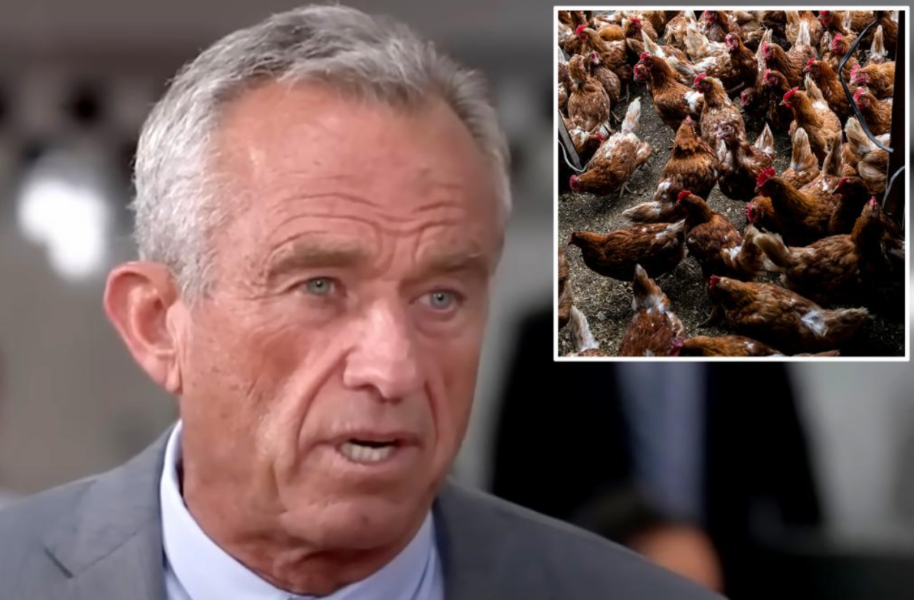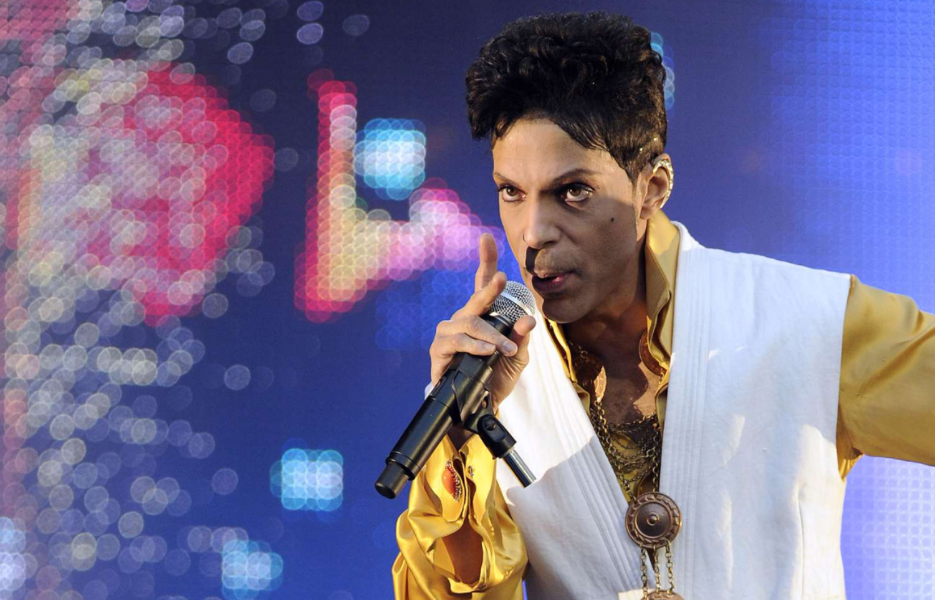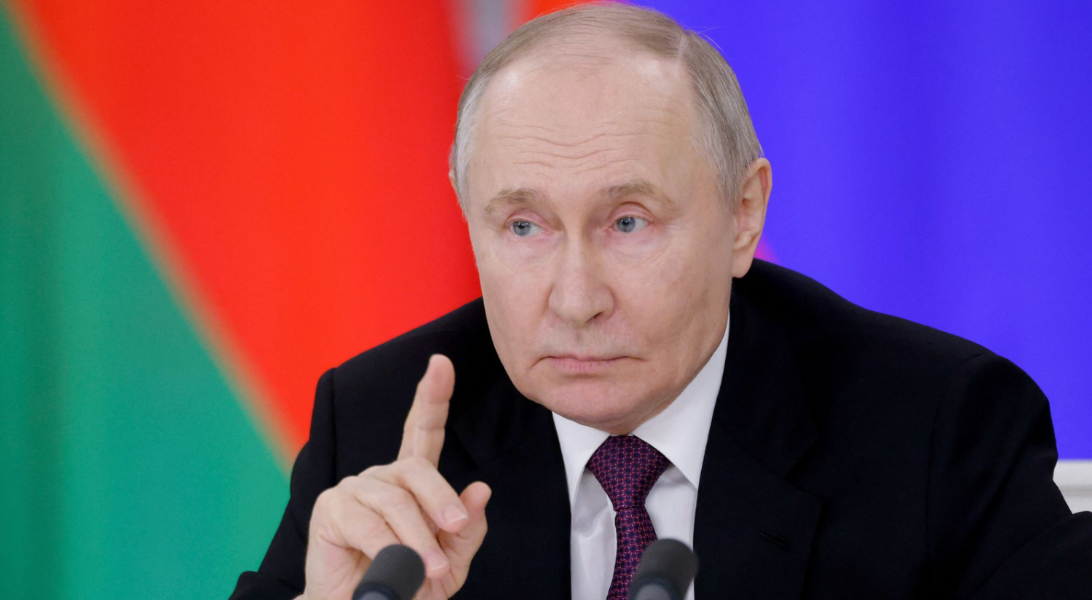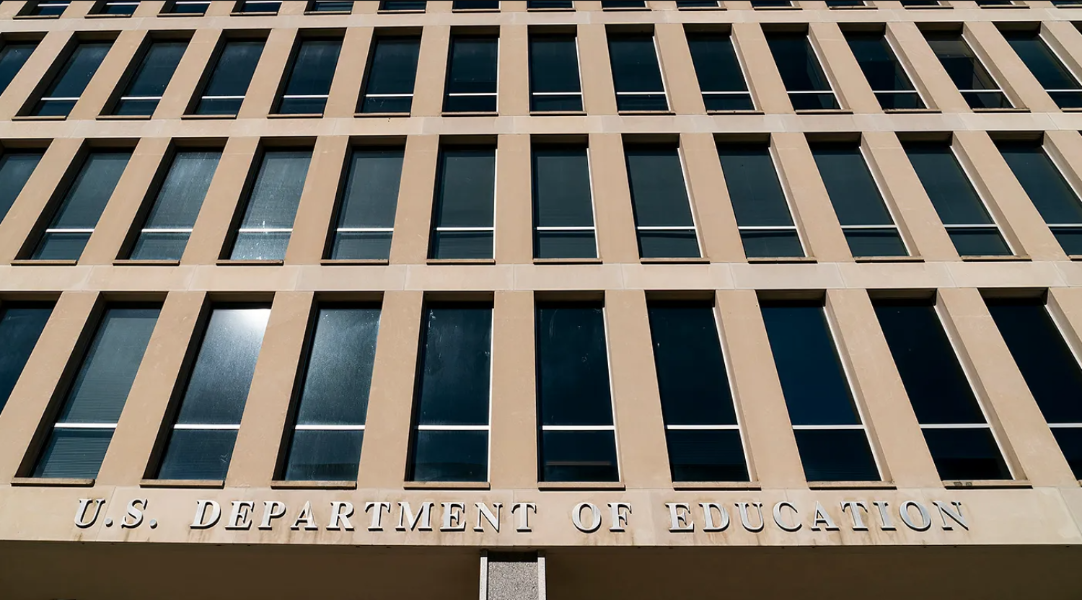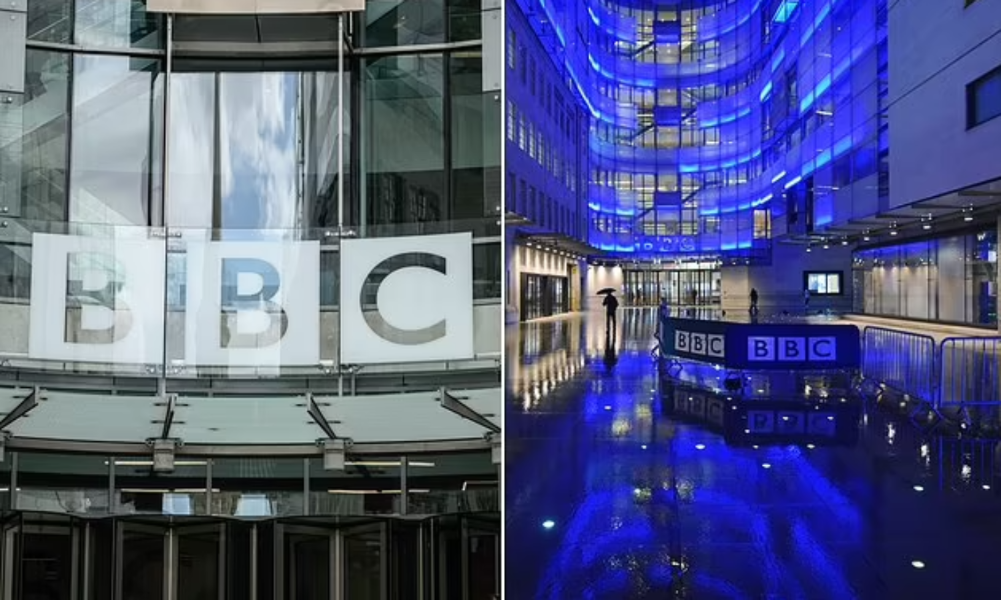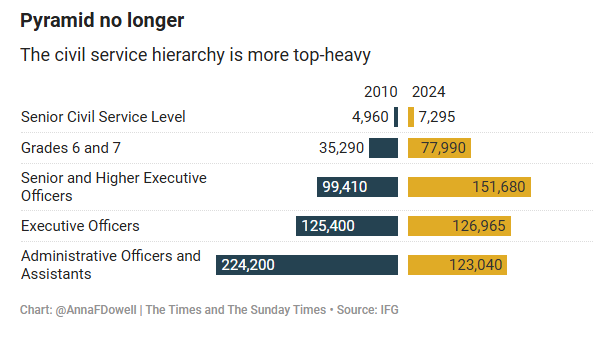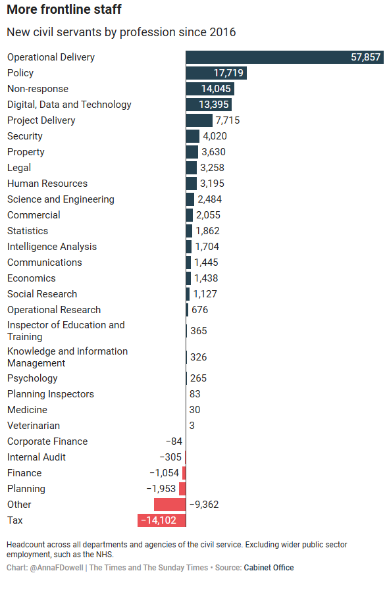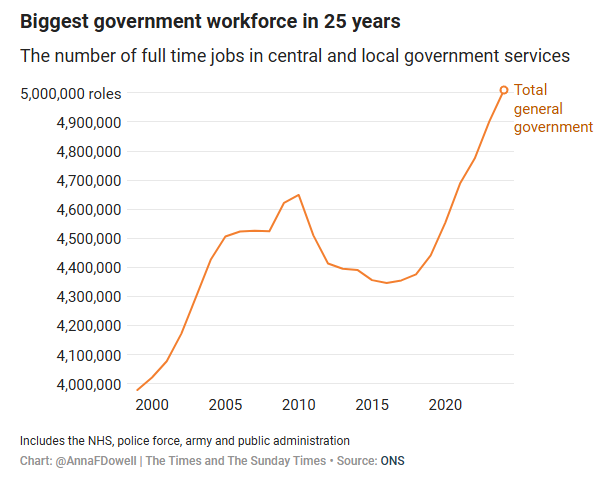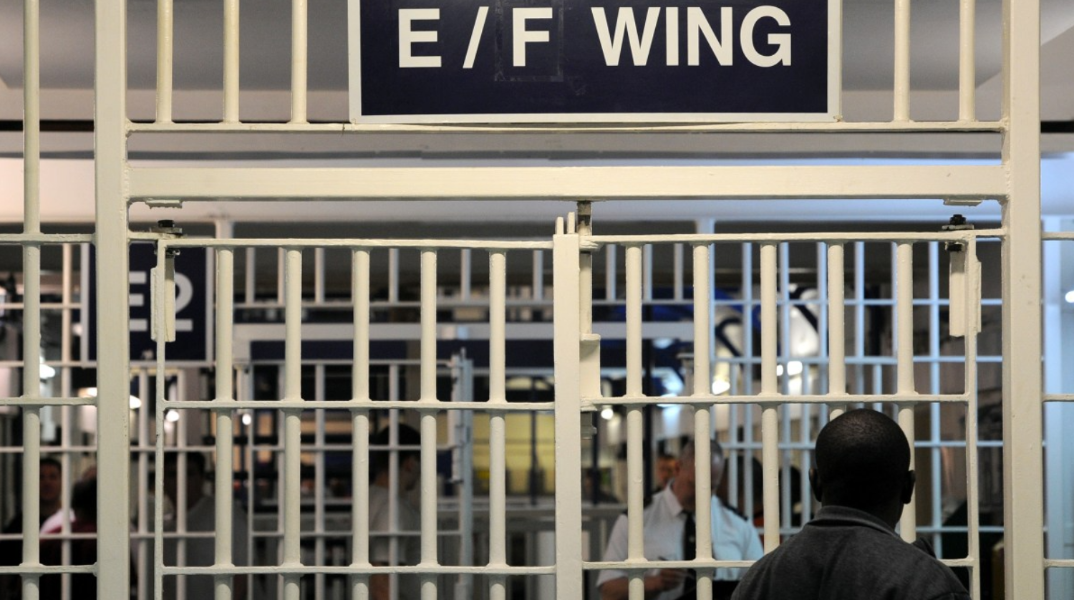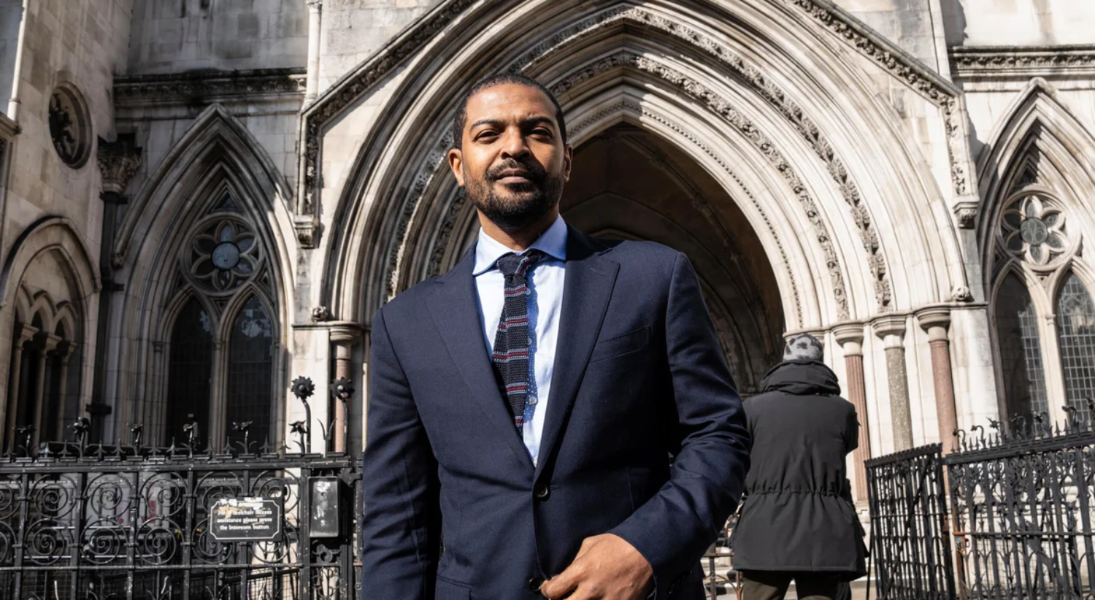-
Posts
10,711 -
Joined
-
Last visited
Content Type
Events
Forums
Downloads
Quizzes
Gallery
Blogs
Everything posted by Social Media
-
Health and Human Services Secretary Robert F. Kennedy Jr. has raised concerns about vaccinating poultry, warning that it could worsen the ongoing avian flu outbreak that has severely impacted American farmers and driven egg prices to record highs. In a recent interview with Fox News host Sean Hannity, Kennedy expressed his apprehension about using vaccines on chickens, arguing that if the vaccine does not provide complete immunity, it could accelerate the mutation of the virus and increase the likelihood of it spreading to humans. “All of my agencies advise against vaccination of birds, because if you vaccinate with a leaky vaccine, in other words a vaccine that does not provide sterilizing immunity, that does not absolutely protect against the disease, you turn those flocks into mutation factories,” Kennedy stated in the interview aired Tuesday. “It’s much more likely to jump to animals if you do that.” Kennedy cited warnings from major health institutions, stating, “The National Institutes of Health, the Centers for Disease Control and Prevention and the Food and Drug Administration have all said we should not be vaccinating. It’s dangerous for human beings to vaccinate the birds.” His remarks come in response to a recent announcement by Secretary of Agriculture Brooke Rollins, who revealed that the U.S. Department of Agriculture will allocate $100 million toward vaccine research as part of a broader $1 billion initiative to combat the effects of bird flu. Rollins criticized the previous administration’s handling of the crisis, saying, “The Biden administration did little to address the repeated outbreaks and high egg prices that followed. By contrast, the Trump administration is taking the issue seriously.” She added, “American farmers need relief, and American consumers need affordable food. To every family struggling to buy eggs: We hear you, we’re fighting for you, and help is on the way.” Typically, when a poultry flock becomes infected with bird flu, farmers resort to culling the birds to prevent the spread of the disease. This practice has led to significant egg shortages and soaring prices, with the Bureau of Labor Statistics reporting the average cost of a dozen eggs reaching a record $4.95 last month. Kennedy questioned this approach, advocating for alternative strategies. “Most of our scientists are against the culling operation,” he stated. “They think that we should be testing therapeutics on those flocks. They should isolate. You should let the disease go with them and identify the birds that survive, which are the birds that probably have a genetic inclination for immunity.” He further argued, “And those should be the birds that we breed, like the wild population.” Highlighting the consequences of mass culling, Kennedy pointed out, “We’ve killed 166 million chickens. That’s why we have an egg crisis.” He also reassured consumers that bird flu is not transmissible through eggs or food. Beyond the bird flu crisis, Kennedy also addressed the ongoing measles outbreak in Texas, where 223 cases have been confirmed since late January, resulting in 29 hospitalizations and the death of one child. Kennedy, who spoke with the child’s family, attributed the outbreak to both unvaccinated populations and the limitations of the measles vaccine itself. “We had 16 measles outbreaks last year, some years we have hundreds of outbreaks. We have measles outbreaks every year and, you know, part of that is that, there are people that don’t vaccinate, but also the vaccine itself wanes,” he said. He explained that while the measles vaccine is effective for some individuals, its effectiveness can diminish over time, particularly affecting the elderly. “It used to be when you and I were kids, everybody got measles and measles gave you a lifetime protection against measles – the vaccine doesn’t do that,” Kennedy remarked. “The vaccine is effective for some people for life, but in many people, it wanes.” Additionally, he raised concerns about the vaccine’s ability to provide maternal immunity. “It does not appear to provide maternal immunity,” Kennedy stated, suggesting that unvaccinated breastfeeding infants may not receive passive protection from their vaccinated mothers. “So you’re now seeing measles hit very, very young kids and hitting older people within whom the vaccine has waned,” he added. “And that is something that we need to worry about and that we’re looking at at HHS.” Despite his concerns about the vaccine's limitations, Kennedy emphasized that HHS is actively addressing the outbreak, supplying measles vaccines and vitamin A to affected areas in Texas. He also encouraged vaccination efforts, stating, “What we need to do is give [people] the best information and encourage them to vaccinate. The vaccine does stop the spread of the disease.” Based on a report by NYP 2025-03-13
-
The Conservative Party has sharply criticized the Labour Government for repealing immigration laws that would allow ministers to reject asylum claims from individuals arriving illegally in the UK, including those considered a security threat. The Tories specifically warned that Labour's new policies could make it harder to remove figures like Abu Wadee, a migrant accused of arriving in the country through unlawful means. Shadow Home Secretary Chris Philp called on Prime Minister Sir Keir Starmer’s government to retain measures introduced by the previous Conservative administration, which granted ministers the power to deem asylum claims "inadmissible" for those entering the country without permission. This authority is set to be repealed under Labour’s Border Security, Asylum and Immigration Bill, currently under parliamentary debate. Philp did not hold back in his criticism of the proposed changes, stating, "The Government must kick out this despicable individual as quickly as possible. But the changes the Labour Government are now proposing in their borders bill will make that far harder, if not impossible, to achieve. The measures passed by the Conservatives provide the Government with powers to remove exactly this kind of individual. Labour must urgently reconsider its ill-advised proposals to ditch these important powers." The Conservatives have also introduced amendments to the bill, seeking to limit the use of human rights laws in immigration legal challenges. Philp further argued that if Starmer does not support the Tories’ proposals to remove the Human Rights Act from immigration cases and ensure illegal migrants are deported, it would prove that Labour is not committed to border security. The issue of small boat crossings continues to be a major point of contention. According to the latest Home Office figures, more than 90 percent of migrants who arrive by small boats go on to seek asylum in the UK. From the start of the crisis in 2018 until the end of last year, 151,138 small boat migrants reached British shores, yet only 4,995—just three percent—have been removed. This data has fueled Conservative criticism that Labour’s approach to immigration is too lenient and will further weaken border controls. With illegal crossings still a pressing concern, the debate over how best to handle asylum seekers and immigration enforcement remains a key political battleground. Based on a report by Daily Mail 2025-03-14
-
Republican Senator Tom Cotton has strongly criticized his Democratic colleagues after they publicly called for the release of Mahmoud Khalil, a Palestinian activist arrested by U.S. Immigration and Customs Enforcement (ICE). The backlash intensified after the Senate Judiciary Committee Democrats posted an image on social media with the caption "Free Mahmoud Khalil." Khalil, a graduate student and permanent U.S. resident, was at the center of anti-Israel protests at Columbia University last year. His arrest took place on Saturday night at his university-owned apartment, where ICE agents took him into custody. The situation has sparked heated political debate, with Republicans condemning Democratic support for Khalil. Columbia anti-Israel agitator Mahmoud Khalil being deported over ‘pro-Hamas propaganda flyers,’ White House says As tensions escalated, protests erupted in New York City in support of Khalil. On Tuesday afternoon, demonstrators clashed with the NYPD, resulting in about a dozen arrests. Protesters blocked a downtown Manhattan street, defying repeated police warnings to disperse. The scene grew chaotic as demonstrators chanted, "Move cops, get out the way, we know you’re Israeli trained," while others hurled insults at officers. Video footage captured protesters taunting law enforcement with phrases like "Oink, oink, piggy, piggy. We’re gonna make your lives s–tty." The protests, which swelled to around 500 people, saw demonstrators chanting slogans like, "There is only one solution, intifada revolution." The controversy has drawn mixed reactions from bystanders, including a tourist from Texas who questioned why many protesters covered their faces with masks and Palestinian headdresses. With political tensions running high, Khalil’s case has become a flashpoint in the ongoing national debate over free speech, immigration policies, and the limits of activism on college campuses. The Trump administration appears determined to continue its crackdown, while Democrats face mounting criticism for their vocal support of Khalil. Related Topics: Federal Education Department Investigates 60 Universities Over Antisemitism Allegations Trump’s Bold Stand Against Campus Antisemitism Sends a Clear Message Trump Border Czar: ICE Will ‘Absolutely’ Deport Legal Immigrants Trump Threatens to Cut Federal Funding Over Campus Protests U.S. State Dept to Use AI to Revoke Visas of Foreign Students with Alleged Ties to Hamas Based on a report by NYP 2025-03-14
-
A young social media star known for his extreme eating videos has tragically passed away at the age of 24 due to complications related to obesity. Efecan Kultur, a well-known mukbang streamer from Turkey, reportedly died on March 7 after spending three months hospitalized with severe health issues. Kultur rose to fame on TikTok, gaining millions of views for his mukbang videos, where he would consume enormous amounts of food on camera. However, his excessive eating habits took a toll on his health, eventually leaving him bedridden. Reports indicate that he suffered from breathing difficulties and severe bruising before his hospitalization. In what would become his final post before his passing, Kultur shared a photo of himself with caretakers, including his mother, captioning it “Family worship.” Tragically, his mother had passed away last year, adding another layer of hardship to his struggles. Just last month, popular Turkish streamer Testo Taylan visited Kultur for an interview. Throughout the conversation, Kultur remained shirtless in bed, his eyes swollen shut due to the excess weight on his face. His condition served as a stark reminder of the dangers of extreme eating habits and the potential consequences of viral mukbang content. The Turkish government has taken note of Kultur’s highly publicized death, using it as an opportunity to caution young people about the risks of mukbang culture. According to *Turkiye Today*, President Erdogan’s administration is now considering legislation to restrict social media usage for those under 16, aiming to curb harmful online trends. Kultur’s passing has sparked a broader conversation about the health risks associated with extreme online content and the responsibility of platforms in moderating such trends. While his videos brought entertainment to many, they also highlight the real-world dangers that can come with chasing viral fame at any cost. Based on a report by NYP 2025-03-14
-
Netflix has pulled the plug on an in-depth documentary that aimed to provide an unprecedented look into the life of music icon Prince. The decision has left the film’s director, Ezra Edelman, speaking out against what he sees as an attempt to control the narrative surrounding the legendary artist. Edelman, who won an Academy Award in 2017 for his extensive eight-hour documentary *O.J.: Made in America*, was initially brought on board in 2018 to direct a sprawling nine-hour project on Prince. This followed the artist’s tragic passing in 2016 at the age of 57 from an accidental fentanyl overdose at his Paisley Park estate in Minnesota. The film was set to replace an earlier version that had been in development under director Ava DuVernay. Despite spending five years working on the project, Edelman’s documentary ultimately hit a dead end. Reports emerged that Prince’s estate had raised objections, citing multiple "factual inaccuracies" within the film. More controversially, it was suggested that the documentary included allegations of abuse against the musician. The uncertainty surrounding the project was put to rest in early 2025 when Netflix officially announced its cancellation. Instead, the streaming giant revealed that they had reached a deal with Prince’s estate to create a new documentary. According to the estate, Edelman’s film contained “sensationalized” accounts, leading to a standoff that effectively buried the project. Edelman, however, has pushed back against the claims. Speaking on a podcast, he expressed his frustration over what he sees as interference from the estate. "Here’s the one thing they’re allowed to do: check the film for factual inaccuracies. Guess what? They came back with a 17-page document full of editorial issues, not factual issues," Edelman explained. "You think I have any interest in putting out a film that’s factually inaccurate?" According to Edelman, the dispute was less about accuracy and more about control, something he believes was a defining trait of Prince himself. "This is reflective of Prince himself, who was notoriously [one of] the most famous control freaks in the history of artists," he said. Edelman also pointed out the irony of the situation, recalling how Prince famously battled Warner Bros. over artistic freedom. "Prince was somebody that fought for artistic freedom, who didn’t want to be held down by Warner Bros., who he believed was stifling his output," Edelman noted. "Now, in this case, it’s like—I’m not Prince, but I worked really hard making something, and now my art’s being stifled and thrown away." When Edelman took on the project, he was granted access to Prince’s vast archives, which he described as "a gift." He passionately defended his work, emphasizing the depth and complexity of the film. "A nine-hour treatment about an artist who was, by the way, f***ing brilliant. Everything about who you believe he is, is in this movie. You get to bathe in his genius. And yet, you also have to confront his humanity," Edelman said. Back in September, *New York Times* reporter Sasha Weiss—one of the few who had the opportunity to see the documentary—described it as a “cursed masterpiece.” She also outlined some of the more controversial claims made in the film, which may have contributed to its cancellation. One particularly shocking moment in the documentary featured an interview with Jill Jones, an ex-lover of Prince, who described an altercation that allegedly took place in 1984. According to Jones, she slapped Prince after he kissed a friend in a hotel room. In response, she claimed, Prince said, "B***h, this ain’t no f***ing movie," before proceeding to punch her in the face multiple times. Another ex-lover, Susannah Melvoin, recounted how Prince sought to control her movements after she moved in with him, allegedly monitoring her phone calls and discouraging her from leaving the house or seeing her sister. The revelations within the documentary, combined with the objections from Prince’s estate, ultimately doomed the project. Now, with Netflix moving forward with a different version in collaboration with the estate, it remains to be seen whether any of Edelman’s work will ever be made public. Based on a report by Daily Mail 2025-03-14
-
Patients taking medication for movement disorders, including restless leg syndrome (RLS), say they were never warned about the severe side effects that led them to engage in risky sexual behavior. Twenty women have come forward to the BBC, revealing how these drugs turned their lives upside down. A report from pharmaceutical company GSK, obtained by the BBC, shows that as early as 2003, the company was aware of a link between dopamine agonist drugs and what it described as “deviant” sexual behavior. The report cited a disturbing case in which a man sexually assaulted a child while taking the medication for Parkinson’s disease. Some women who spoke out about their experiences had no idea what was causing their sudden, compulsive urges. Others found themselves drawn to gambling or shopping sprees, despite having no prior history of such behavior. One woman accumulated debts of over £150,000. Claire, one of the women affected, first developed RLS during pregnancy. She described the symptoms as an unbearable urge to move, accompanied by sleeplessness and a crawling sensation under her skin. However, she soon found herself acting in ways she never imagined. “The only way I could describe it is it was just deviant,” she said, unaware of the term’s connection to the 2003 GSK research. Claire began leaving her home in the early hours of the morning, seeking out men for sex. Wearing revealing clothing, she would expose herself to strangers, even in increasingly dangerous situations, despite being in a committed relationship. “There remains an element in your head that knows what you're doing is wrong, but it affects you to the point that you don't know you're doing it.” It took Claire years to link these behaviors to her medication, and once she stopped taking it, the urges disappeared. Now, she is left with overwhelming shame and regret. Medical literature has long listed impulsive behaviors, including gambling and heightened sexual desire, as potential side effects of dopamine agonist drugs. Health guidance from the National Institute for Health and Care Excellence (NICE) suggests that 6% to 17% of RLS patients may experience these effects, far higher than the 1% threshold typically considered a “common” side effect by the NHS. These drugs work by mimicking dopamine, a chemical in the brain that regulates movement and is associated with feelings of pleasure and reward. However, experts warn that dopamine agonists can overstimulate these sensations while dulling a person’s ability to recognize consequences, leading to reckless behavior. The 2003 GSK report detailed cases of men taking Ropinirole for Parkinson’s disease who engaged in extreme behavior. One 63-year-old man sexually assaulted a seven-year-old girl, leading to a prison sentence. His libido had increased significantly when he began taking the drug, and his urges disappeared after his dosage was reduced. Another case involved a 45-year-old man who engaged in “uncontrolled acts of exhibitionism and indecent behavior,” with his sexual compulsions intensifying after starting the medication. The 20 women who spoke to the BBC claim that doctors failed not only to warn them about these risks but also to monitor the effects of the medication over time. Sarah, another patient, said that before taking the drug, she had little to no interest in sex. “Previously, I’d have had no interest if Brad Pitt walked in the room naked,” she said. “But it turned me into this raging woman who kept taking sexual addiction further.” Sarah’s compulsions led her to sell used underwear and explicit videos online while arranging phone sex with strangers. She also developed a compulsive shopping habit, leading to £30,000 in debt. Desperate to regain control, she turned to opioids and sleeping pills, which led to her admission to rehab. As a result, she lost her job and her driver’s license. “I turned to things that weren’t healthy—I knew that the behavior wasn’t me, but I couldn’t control it.” Sue, another woman affected, was prescribed two different dopamine agonist drugs without any warnings about compulsive behavior. She even mentioned new gambling tendencies to her doctor before being given the second prescription. The gambling spiraled, leaving her £80,000 in debt. “The effect on my family was horrific—it was life-changing money to lose,” she said. “But at the time, I didn’t know it was no fault of my own.” A class-action lawsuit against GSK was filed in 2011 by four Parkinson’s patients who suffered similar compulsions. They alleged that Ropinirole caused gambling addictions and the breakdown of their relationships. They also pointed out that medical studies had established a connection between the drug and compulsive behaviors as early as 2000, yet GSK did not update its product warnings until March 2007. Although the case was settled, GSK denied any liability. GSK has since stated that its findings were shared with health authorities and contributed to updates in prescribing information. Current patient leaflets for Ropinirole now warn of “altered or increased sexual interest” and “behavior of significant concern.” The UK’s Medicines and Healthcare products Regulatory Agency (MHRA) acknowledged that while the term “deviant” sexual behavior is not explicitly mentioned, warnings about potentially harmful impulses are included. The MHRA emphasized that healthcare professionals must explain these risks to patients, though not all individuals experience these side effects. The Department of Health and Social Care declined to comment on the issue. Based on a report by BBC 2025-03-14
-
The National Transportation Safety Board has revealed a troubling history of aviation risks at Reagan National Airport, with over 15,000 near-miss incidents between helicopters and jets occurring within three years before the tragic midair collision that claimed 67 lives. The crash, involving an American Airlines jet and a U.S. Army helicopter on January 29, has intensified scrutiny over flight safety in the area. NTSB Chairwoman Jennifer Homendy addressed reporters on Tuesday, describing the situation as an “intolerable risk to aviation safety.” Between October 2021 and December 2024, helicopters and jets at the airport came dangerously close to one another, within one nautical mile and 400 vertical feet, over 15,000 times. Even more concerning, 85 of these incidents saw aircraft separated by just 200 vertical feet. "We remain concerned about the significant potential for future midair collisions at DCA," Homendy warned. In response, the NTSB is recommending the closure of the helicopter route where the fatal collision took place, calling for an alternative route to be implemented. “We are recommending a permanent solution today,” Homendy stated. She expressed frustration that safety measures had not been enforced sooner, saying the findings left her “angry” that action hadn’t been taken before this tragedy. Despite the urgent recommendations, several questions remain unanswered. Investigators have not yet disclosed specific details about the altitude at which the Black Hawk helicopter was flying when it collided with the jet, citing ongoing flight data analysis. Conflicting reports emerged, with flight data from the American Airlines jet indicating it was flying at around 313 feet at the time of impact, while Reagan tower data suggested the helicopter was at 278 feet. Given that helicopters flying over the Potomac River are restricted to a ceiling of 200 feet, early findings suggest the chopper may have been well above the legal limit in an already congested airspace. Investigators have also raised concerns that the Black Hawk’s crew may have been relying on inaccurate altitude data. NTSB officials noted that their instruments could have provided “bad data,” leading them to misjudge their actual altitude. Additionally, a critical miscommunication in the moments before the crash may have played a role. Just seconds before impact, the control tower instructed the chopper crew to “pass behind” the jet, but the crew may have missed this directive because they transmitted a response at the exact moment the instruction was given. The devastating wreck was the deadliest aviation disaster in the U.S. since November 12, 2001, when an American Airlines flight crashed into a Queens neighborhood shortly after taking off from JFK International Airport, killing 260 people onboard and five on the ground. The NTSB later determined that pilot error was likely responsible for that crash. Among the victims of January’s tragedy were numerous young athletes who had recently competed in the 2025 U.S. Figure Skating Championship in Wichita, Kansas. Several parents and coaches accompanying them also lost their lives. At least 14 of the victims were members of the U.S. Figure Skating team, and their deaths sent shockwaves through the tight-knit East Coast skating community. Based on a report by NYP 2025-03-14
-
The four-member SpaceX Crew-10 mission is set to relieve two NASA astronauts who have been stranded in space for nine months, marking a crucial step toward bringing them home. Astronauts Sunita Williams and Butch Wilmore have far exceeded their original eight-day mission and are now awaiting their replacements before returning to Earth. Crew-10, consisting of Japan's Takuya Onishi, Russia's Kirill Peskov, and NASA astronauts Anne McClain and Nichole Ayers, was scheduled to launch from NASA’s Kennedy Space Center in Florida at 7:48 p.m. ET on Wednesday. However due to a hydraulic system issue with a ground support clamp arm, the mission had to be scrubbed. The mission is now targeting a launch no earlier than Friday, March 14, at 7:03 p.m. EDT (2303 UTC). If the launch proceeds as planned, their Dragon capsule will dock with the International Space Station (ISS) around 10 a.m. ET on Thursday, paving the way for Williams and Wilmore’s departure on March in the second half of March. On Sunday, the Crew-10 astronauts conducted a final rehearsal, donning their spacesuits and performing air leak checks before boarding the SpaceX Dragon capsule for a dry-run. The mission's commander, Anne McClain, expressed enthusiasm about the upcoming launch, stating, "We are going to take a little bit of an adventure. We’re ready to high-five them, bring them home." Following the astronauts' exit from the launch pad, SpaceX proceeded with routine tests on the Falcon 9 rocket that would propel them to the ISS. Upon arrival, Crew-10 will remain aboard the space station for six months, continuing the work initiated by the current ISS crew. Williams and Wilmore's long-awaited return has been complicated by a series of delays and now one more has cropped up. Their original spacecraft, Boeing’s Starliner, experienced multiple technical failures, including thruster malfunctions and helium leaks, forcing NASA to send the vehicle back to Earth without its crew in September. As a result, Williams and Wilmore have been awaiting a new ride home. NASA's handover protocol requires an overlap between incoming and outgoing crews to ensure a smooth transition and familiarize new astronauts with station operations. Typically, this process lasts five days, but to conserve ISS food supplies and increase undocking opportunities for the outgoing Crew-9, NASA has shortened it to just two days. The capsule designated to bring Williams and Wilmore home has been docked at the ISS for months. They will be joined on their return journey by NASA’s Nick Hague and Russia’s Aleksandr Gorbunov, who arrived at the station in September 2024. The extended stay of Williams and Wilmore has not only drawn attention from the scientific community but has also become a topic of political controversy. SpaceX CEO Elon Musk and former President Donald Trump have accused the Biden administration of deliberately delaying the astronauts' return for political reasons. Musk has claimed that his offer to bring the astronauts home earlier was rejected to avoid benefiting Trump’s campaign. Musk, a vocal Trump supporter, donated $288 million to his 2024 presidential campaign and appeared at multiple rallies. During a recent appearance on "The Joe Rogan Experience," Musk alleged that the administration intentionally postponed the return past Inauguration Day to avoid boosting Trump’s public image and impacting Kamala Harris' potential campaign. Despite the political disputes, NASA remains focused on the mission at hand. With the Crew-10 launch on the horizon, the long ordeal of Williams and Wilmore may finally be coming to an end. Based on a report by Daily Mail 2025-03-14 Related Topics: NASA Stranded Astronaut Sides with Musk in Controversy Over ISS Rescue Plan Elon Musk Claims Biden Administration Delayed NASA Astronauts’ Return for Political Gain
-
A five-year-old boy lost his life in a horrifying accident when a hyperbaric oxygen chamber burst into flames during an alternative treatment session for ADHD and sleep apnea. Thomas Cooper was pronounced dead at the scene on January 31 at the Oxford Center in Detroit, with officials describing his death as an "incineration" inside the pressurized chamber. Authorities in Michigan have since charged five individuals in connection with the tragedy. The center’s founder and CEO, 58-year-old Tamela Peterson, has been charged with second-degree murder. The facility’s manager, Gary Marken, 65, and its safety manager, Gary Mosteller, 64, face charges of second-degree murder and involuntary manslaughter. Aleta Moffitt, 60, who was operating the chamber at the time of the explosion, has been charged with involuntary manslaughter and falsifying medical records. Thomas had been undergoing hyperbaric oxygen therapy, a procedure where patients breathe pure oxygen in a pressurized environment. The treatment has not been approved by the Food and Drug Administration (FDA) for ADHD or sleep apnea, though some studies suggest potential symptom relief. Michigan Attorney General Dana Nessel provided a grim assessment of the incident at a press conference. “A single spark, it appears, ignited into a fully involved fire that claimed Thomas’s life within seconds,” she said. “Fires inside a hyperbaric chamber are considered a terminal event. Every such fire is almost certainly fatal, and this is why many procedures and essential safety practices have been developed to keep a fire from ever occurring.” Nessel accused the defendants of prioritizing financial gain over patient safety, stating they had subjected children to “unaccredited and debunked treatments for profit.” Raymond Cassar, the attorney representing Marken, pushed back against the charges, calling them a “total shock.” “This was a tragic accident, and our thoughts and prayers go out to the family of this little boy,” he said. “I want to remind everyone that this was an accident, not an intentional act. We’re going to have to leave this up to the experts to find out what was the cause of this.” Thomas’s family has not publicly responded to the charges, but attorney James Harrington, representing them, described their devastation. He revealed that Thomas’s mother sustained injuries while desperately trying to save her son from the fire. In the aftermath of the explosion, the Oxford Center released a statement expressing sorrow and pledging cooperation with investigations. “The safety and well-being of the children we serve is our highest priority,” the statement read. “Nothing like this has happened in our more than 15 years of providing this type of therapy. We do not know why or how this happened and will participate in all of the investigations that now need to take place.” Nessel stated that her office had consulted extensively with experts in hyperbaric therapy before pursuing charges. “Horrifying and simple conclusions were reached,” she said. “The Oxford Center routinely operated sensitive and lethally dangerous hyperbaric chambers beyond their expected service lifetime and in complete disregard of vital safety measures and practices considered essential by medical and technical professionals.” While some attorneys representing those charged have spoken out, others have declined to comment ahead of legal proceedings. A voicemail seeking comment from an attorney representing the Oxford Center has not yet been returned. As investigations continue, this tragic incident raises serious concerns about the oversight of alternative treatments and the safety protocols—or lack thereof—at facilities offering them. Based on a report by The Telegraph 2025-03-14
-
In just 50 days, Donald Trump has upended our world. He has ripped up rules, attacked allies and sided with enemies. A country we thought for decades had our backs is no longer a reliable partner. We travelled thousands of miles to ask what that means for our lives and millions of others - from the sweltering backstreets of Africa to the frozen wastes of Greenland and Finland's tense border with Russia. Donald Trump's supporters at home and abroad see him as the disruptor-in-chief who will bring peace and prosperity, putting America first. But to many others we found he threatens chaos and a far darker future. 50 days of Donald Trump: How the world order turned upside down | The World with Gillian Joseph Based on a report by Sky News 2025-03-14
- 130 replies
-
- 20
-

-

-

-

-

-

-

-
In a major shake-up of the healthcare system, Prime Minister Sir Keir Starmer has announced that NHS England will be abolished in a move aimed at cutting bureaucracy, redirecting funds to frontline services, and restoring government oversight of the health service. NHS England, which was established over a decade ago by the Conservative government, has been criticized for inefficiencies and duplication, which Starmer says the country can no longer afford. Starmer was particularly critical of the structural inefficiencies within NHS England, which he argued had created unnecessary layers of management and duplicated functions already handled by the government. "Amongst the reasons we're abolishing it is because of the duplication. So if you can believe it, we've got a communications team in NHS England, we've got a communications team in the health department of government. We've got a strategy team in NHS England, a strategy team in the government department. We're duplicating things that could be done once. If we strip that out, which is what we're doing today, that then allows us to free up that money, to put it where it needs to be, which is the front line." Starmer says 'world's largest quango' NHS England will be SCRAPPED as he condemns 'flabby, unfocused and over-cautious' state for giving worst value EVER - and vows civil service AI drive can save £45bn While this is one of the most significant reforms announced by Starmer’s government so far, he made it clear that it would not be the last difficult decision his administration would take. "Tough choices won't just stop there. In this era, they will keep on coming. Our task is clear, national security, national renewal, driving change forward with a plan for change, focused on the interests of working people, securing our future together," he asserted, signaling a broader commitment to streamlining government operations. Despite his push for structural changes, Starmer also took a moment to defend civil servants, clarifying that the issue was not about their competence or attitude. "The problem was not that they had the wrong mindframe, or anything like that," he said, ensuring that his reform efforts were not an attack on public sector workers but rather on inefficiencies within the system. In addition to his plans for the NHS, the prime minister also confirmed a significant shift in the government's approach to business regulations. He announced a new initiative aimed at reducing compliance costs for businesses by 25 percent. "Today I'm issuing a new target for our government. We will make sure compliance costs for businesses are cut by a quarter. That's 25 per cent compliance costs that are going to go – and they will. That's less red tape, more delivery, renewing our country with growth," he stated, underlining his vision for economic efficiency. With these sweeping changes, Starmer is positioning his government as one focused on cutting through bureaucracy and redirecting resources to where they are needed most. The abolition of NHS England marks a decisive moment in his administration’s efforts to reform public services, and it remains to be seen how this move will impact the healthcare sector in the long term. Based on a report by The Independent 2025-03-14 Related Topics: Why the UK Civil Service Keeps Growing—But Not Improving
-

Russia Rejects Trump's Temporary Ukraine Ceasefire Offer
Social Media replied to Social Media's topic in World News
An unapproved web link has been removed @KhunLA Update: Putin Calls for Significant Revisions to U.S. Ceasefire Plan for Ukraine -
President Vladimir Putin stated on Thursday that Russia was open to a U.S.-proposed ceasefire in Ukraine but emphasized that any agreement must address the fundamental causes of the conflict and resolve numerous critical details. While his remarks signaled a willingness to engage in discussions with U.S. President Donald Trump, the extensive conditions he outlined suggested that an immediate ceasefire was unlikely. He detailed a range of points requiring further clarification and expressed appreciation for Trump’s peace efforts. Trump, who has repeatedly said he wants to be remembered as a peacemaker, has been actively pushing for a resolution. Both the U.S. and Russia now describe the war as a proxy battle that risked escalating into a much broader global conflict. Trump, indicating his willingness to discuss the matter directly with Putin, called the Russian leader’s statement "very promising" and expressed hope that Moscow would "do the right thing." He pointed to his special envoy, Steve Witkoff, who has been engaged in serious discussions with Russian officials in Moscow regarding the U.S. proposal, which Ukraine has already agreed to. The outcome of those talks, according to Trump, would reveal Russia’s true stance. "Now we're going to see whether or not Russia is there, and if they're not, it'll be a very disappointing moment for the world," Trump said. Ukrainian President Volodymyr Zelenskiy, however, remained skeptical of Putin’s approach. He suggested that the Russian leader was hesitant to outright reject the ceasefire proposal due to pressure from Trump. "That's why in Moscow they are imposing upon the idea of a ceasefire these conditions, so that nothing happens at all, or so that it cannot happen for as long as possible," Zelenskiy remarked in his nightly video address. While the possibility of a ceasefire remains on the table, Putin’s insistence on significant revisions casts doubt on any immediate resolution to the war. The coming days will be crucial in determining whether diplomatic efforts can bridge the divide or if hostilities will persist. Based on a report by Reuters 2025-03-14
-
A senior Kremlin official rejected the idea of a temporary ceasefire, as proposed by U.S. President Donald Trump's administration, saying Russia was only interested in a long-term resolution of the Ukraine conflict, Russian media reported. Yuri Ushakov, an aide to Russian President Vladimir Putin, gave an interview to the Russia-1 TV channel. "We believe that our goal is a long-term peaceful settlement, we strive for this, a peaceful settlement that takes into account the legitimate interests of our country, our well-known concerns," Ushakov said, Interfax reported. "It seems to me that no one needs any steps that imitate peaceful actions in this situation." Ukashov said Putin may speak today on "more specific and substantive assessments" around the ceasefire proposal, Meduza reported. The U.S. and Ukraine agreed on a 30-day ceasefire plan during their talks in Saudi Arabia. The Trump Administration is now taking that proposal to the Russians. Trump wants to see a quick peace in Ukraine. He has criticized the vast destruction and loss of life, as well as the huge cost to American taxpayers of backing Ukraine's defense. Based on a report by Newsweek 2025-03-14
-
The U.S. Department of Education’s Office of Civil Rights (OCR) has launched investigations into 60 universities over concerns of antisemitism, according to letters sent on Monday. These institutions are being scrutinized for allegedly failing to meet Title IX obligations to protect Jewish students from discrimination and harassment. “The Department is deeply disappointed that Jewish students studying on elite U.S. campuses continue to fear for their safety amid the relentless antisemitic eruptions that have severely disrupted campus life for more than a year. University leaders must do better,” said Education Secretary Linda McMahon. She emphasized that federal funding for colleges and universities comes with responsibilities, stating, “U.S. colleges and universities benefit from enormous public investments funded by U.S. taxpayers. That support is a privilege and it is contingent on scrupulous adherence to federal antidiscrimination laws.” The universities under investigation range from Ivy League institutions like Harvard University to smaller schools such as Middlebury College. The warnings follow the federal government’s recent decision to withdraw $400 million in funding from Columbia University over alleged failures in addressing antisemitism complaints. OCR has also committed to prioritizing antisemitism cases, moving to address a backlog of complaints at various institutions. The crackdown comes just days after U.S. Immigration and Customs Enforcement arrested a Columbia University graduate student with a green card who was involved in pro-Palestinian protests. The intensified federal scrutiny is already impacting universities. Harvard University announced on Monday that it was implementing a hiring freeze due to uncertainties surrounding federal policies and funding. Meanwhile, the University of California, Los Angeles, has launched a new initiative aimed at combating antisemitism on campus. As investigations proceed, the federal government continues to emphasize the importance of enforcing Title IX protections, signaling potential consequences for institutions that fail to adequately address antisemitism within their campuses. Based on a report by The Hill 2025-03-13 Related Topics: Trump’s Bold Stand Against Campus Antisemitism Sends a Clear Message Trump Border Czar: ICE Will ‘Absolutely’ Deport Legal Immigrants Trump Threatens to Cut Federal Funding Over Campus Protests U.S. State Dept to Use AI to Revoke Visas of Foreign Students with Alleged Ties to Hamas
-
A senior aide to Health Secretary Wes Streeting has been suspended from the Labour Party and is under parliamentary investigation after admitting to indecent exposure. Sam Gould, 33, pleaded guilty to unlawfully exposing himself, leading to widespread condemnation and demands for his resignation as a Redbridge councillor. Streeting expressed his dismay over the revelations, stating, “I am shocked and horrified by this news and my heart goes out to the victims of these totally abhorrent acts. No one should have to endure this behaviour and I am grateful to the police for taking swift action.” Gould appeared at Barking Magistrates’ Court on Monday, where he was released on bail following his guilty plea. His case was first reported by *The Sun*. Alongside his suspension from the Labour Party, he now faces mounting pressure to step down from his position as a councillor in Redbridge. Streeting emphasized his disappointment in his aide’s actions, saying, “A disciplinary process has been under way since I was made aware of his arrest at the weekend and, following his guilty plea, I am calling for him to resign as a Redbridge councillor immediately. He has abused my trust, the trust of my team and the trust of my constituents and must now accept the consequences of his actions.” Labour has acted swiftly in response to the allegations. A party spokesperson addressed the situation, stating, “These allegations are extremely serious and upsetting. As soon as they were brought to our attention, Mr Gould was immediately suspended both from his role in the constituency office and from the party, pending a police investigation. We will not be providing any further comment during legal proceedings.” Gould is set to be sentenced next month. His guilty plea has reignited discussions around the handling of indecent exposure cases within the criminal justice system. During the general election campaign, Labour committed to overhauling what it described as a “woefully inadequate” approach to addressing such crimes. In light of the Sarah Everard case, the party vowed to conduct a “fundamental review” of indecent exposure, launch a public information campaign encouraging victims to come forward, and implement specialist training for police officers. As the legal process unfolds, the pressure on Gould to resign intensifies, while Labour continues to reaffirm its commitment to tackling these issues within the justice system. Based on a report by The Telegraph 2025-03-13
-
Recent figures from the BBC’s annual report reveal that senior managers from minority backgrounds, including ethnic minorities, women, LGBT individuals, and disabled staff, receive higher salaries than their counterparts. This revelation has sparked criticism, with some arguing that the broadcaster, despite its commitment to equal pay, is now overseeing what has been called "reverse pay gaps." The BBC’s 2021-2023 "diverse leadership" targets aimed for 50 percent of senior roles to be occupied by women, at least 20 percent by black, Asian, or minority ethnic staff, and 12 percent by disabled individuals. Data from the latest report, cited by *The Telegraph*, indicates that LGBT senior managers earn 15.6 percent more than those who do not identify as such. Senior leaders from black, Asian, and other ethnic minority backgrounds earn a median 12.6 percent more than their white colleagues. Disabled senior managers receive an 8.4 percent higher salary than non-disabled peers, while female bosses in top roles earn 5.7 percent more than male counterparts. Elliot Keck of the TaxPayers’ Alliance criticized these findings, telling *The Telegraph*, "Licence fee payers will be dismayed by these reverse pay gaps. Auntie’s obsession with diversity, equality, and inclusion has resulted in the very discrimination that it was supposed to protect against. The BBC needs to foster a culture of meritocracy, not one of virtue-signalling." A BBC source responded by noting that these pay gaps were specific to senior management and not reflected in the broader workforce. A spokesperson for the broadcaster defended its hiring and compensation practices, stating, "The BBC is committed to fair and equal pay for all, and all appointments are made on merit. An external Equal Pay Audit recently concluded that there was no evidence of systemic bias in our pay approach or policies. We continue to monitor our pay gaps closely and do expect to see small fluctuations year-on-year, and we’d advise against the selective use of figures." Based on a report by Daily Mail 2025-03-13 Related Topics: BBC Chairman Calls for More Working-Class Northerners to Balance Liberal Bias BBC Chairman Proposes Higher Fees for Wealthier Households
-
In a candid interview with *The Times of London*, acclaimed actor Ian McKellen encouraged closeted actors to embrace their true selves, declaring that staying hidden is unnecessary. The 85-year-old, known for his roles in *The Lord of the Rings* and *X-Men*, reflected on his own experience coming out in 1988 during a BBC radio interview, which preceded his co-founding of the LGBTQ rights charity Stonewall in the U.K. “I have never met anybody who came out who regretted it,” McKellen told *The Times*. “I feel sorry for any famous person who feels they can’t come out. Being in the closet is silly — there’s no need for it. Don’t listen to your advisers, listen to your heart. Listen to your gay friends who know better. Come out.” Despite great strides in LGBTQ representation, McKellen pointed out that no openly gay actor has ever won an Academy Award for Best Actor, nor has there been an openly gay U.K. prime minister or Premier League footballer. He speculated that young athletes, much like actors, might be receiving poor advice from agents more concerned with their own interests than their clients’ well-being. “I would imagine young footballers are probably, like actors, getting very bad advice from agents who are worried about their own incomes. But the first Premier League footballer to come out will become the most famous footballer in the world, with all the agencies begging for his name on their products.” McKellen expressed hope that in England, where same-sex marriage has been legal since 2014, societal acceptance has grown. “In this country, I hope because of gay marriage, more people are less frightened and more accepting of gay people,” he said. “Elsewhere the picture is not so good.” His advocacy for LGBTQ rights stretches back decades. Though some colleagues were aware of his sexuality, McKellen only came out publicly at 48, during a period when England was considering Section 28—a law that prohibited the “promotion of homosexuality” by local authorities. Shortly after its enforcement, Stonewall was formed and ultimately led efforts to have the law repealed. McKellen also revealed he is mentoring a fellow openly gay actor who will play the lead in a stage production of Christopher Marlowe’s *Edward II*, a historical drama centered on the 14th-century English king and his same-sex relationship. McKellen himself performed in the play back in 1969 in Scotland, at a time when homosexuality was still illegal in the country. Reflecting on the role, he remarked, “You don’t have to be gay to play Edward II. But it helps.” Based on a report by NBC News 2025-03-13
-
Despite decades of promises to streamline Whitehall, the civil service continues to expand without becoming significantly more effective. Every few years, a new government pledges to cut staff, boost efficiency, and reward high performers while removing underachievers. Yet, the same systemic issues remain. This cycle is not new. In 2004, Tony Blair called for radical reform, demanding fewer Whitehall staff, greater specialization, and an end to rigid departmental structures. Fast forward to 2025, and Sir Keir Starmer is making the same demands. Even earlier, the 1968 Fulton report criticized an overreliance on generalists, a lack of scientific expertise, and poor personnel management. The fundamental question is why, after all these years, change remains elusive. According to Alex Thomas from the Institute for Government, one key reason is the lack of a clear leadership structure. “One of the reasons why change is hard is that nobody really runs the civil service,” he explained. “The cabinet secretary is head of the civil service, but in the end, departments are federated and do their own thing.” This decentralization limits any prime minister’s ability to implement widespread reform. Recent history has proven that political pledges alone are insufficient. In 2022, Boris Johnson vowed to cut 90,000 civil service jobs, reversing the post-Brexit increase. However, despite a promised “headcount cap” in 2023, civil service numbers continued to rise. Today, the workforce is 115,000 stronger than its pre-Brexit low, making it the largest since 2006. Lord Maude of Horsham, who led significant reductions in civil service size under the coalition government, believes it is possible to make cuts without chaos. “We didn’t set a target to downsize by more than 20 percent, but it did happen without any massive drama—so it can be done,” he said. However, post-Brexit political instability made it difficult for ministers to stay focused on long-term reform. As a result, even widely supported initiatives, such as Michael Gove’s 2021 government efficiency plan, ultimately stalled. The Public and Commercial Services (PCS) union, represented by Fran Heathcote, argues that Maude’s previous cuts were unsustainable. She points out that Brexit and the COVID-19 pandemic forced the government to hire more staff. Indeed, the chaotic response to these crises led to uncontrolled recruitment. “You could say that the civil service and ministers wasted the opportunity to rewire the state during those crises,” Thomas observed. “There is now scope to unwind some of that growth.” There is general agreement that the civil service needs a way to remove poor performers. However, as Thomas cautions, measuring performance in government work is often difficult. Meanwhile, Dave Penman, general secretary of the FDA civil service trade union, argues that uncompetitive salaries are a major issue. Real pay for top civil service grades has fallen by over 20 percent since 2010, leading to record-high staff turnover. Middle management has doubled in size over the past decade, as departments have promoted staff to circumvent pay constraints—eliminating much of the intended cost savings. Beyond Whitehall, the government workforce has now surpassed five million, driven primarily by growth in the NHS and academized schools. Local government, however, has not recovered from post-2010 cuts. In 2000, councils employed as many people as central government; today, they are half that size. Some growth in the civil service has been unavoidable. Brexit led the UK to take on many responsibilities previously handled by the EU. For example, the Department for Environment, Food, and Rural Affairs has quadrupled in size since 2016. Similarly, the Home Office has hired 58,000 additional staff—many for asylum casework—as the government struggled to manage a backlog of immigration claims. Ironically, while Starmer has pledged to increase military spending, the Ministry of Defence is the only department to have shrunk since 2016. On Monday, Starmer and Sir Chris Wormald, the cabinet secretary, sent an email to civil servants promising a “rewiring of the British state.” They acknowledged that top performers had been “shackled by bureaucracy, frustrated by inefficiency, and unable to harness new technology.” Their message was optimistic: “You will be supported to do things differently and be rewarded for delivery.” However, history suggests that talk is easy; meaningful reform is much harder. Andrew Haldenby of the Effective Governance Forum warns that past attempts have failed because prime ministers did not prioritize reform. “Keir Starmer has to take the lead,” he said. Starmer is expected to outline his plans in more detail on Thursday, but making those plans a reality will require a sustained effort to convince permanent secretaries and civil servants that change is in their best interest. Lord Maude offers a simple solution: appoint a dedicated head of the civil service, separate from the cabinet secretary, to focus solely on reform. “The central problem is there is no one in charge,” he said. “Unless you’re positively trying to control the size of the civil service and reduce it, it will grow. There are spasms of reform which occasionally make a difference. But there is always a tendency to regress.” Based on a report by The Times 2025-03-13
-
The Sentencing Council has firmly rejected the justice secretary’s demand to reverse new sentencing guidelines that require judges to consider an offender’s ethnic, cultural, or religious background when determining their sentence. These changes, set to take effect in April, have sparked controversy, with critics warning they could create a “two-tier” justice system by potentially leading to more lenient sentences for ethnic minority and transgender offenders. Lord Justice William Davis, the chairman of the Sentencing Council, has made it clear that the judiciary must remain independent and not be subjected to ministerial influence. In response to Justice Secretary Shabana Mahmood’s letter urging the council to withdraw the guidance, Davis stated that sentencing should not be dictated by the government. The two are set to meet for discussions on the matter. The updated guidelines advise judges to take into account whether an offender belongs to an ethnic, cultural, or religious minority when deciding between a custodial or community sentence. This has drawn sharp criticism from those who argue it undermines the principle of equal treatment under the law. Mahmood, in her letter to Davis, threatened to introduce legislation to override the independent Sentencing Council’s decision if it refused to reconsider the guidance. She also indicated she would review whether the authority to issue sentencing guidelines should be transferred from the council to government ministers. However, Davis firmly rejected these threats, emphasizing the necessity of maintaining judicial independence in sentencing matters. “I respectfully question whether the inclusion of a list of cohorts in the imposition guideline was a policy decision of any significance. However, whatever the import of the decision, it related to an issue of sentencing,” he stated. He also warned, “In criminal proceedings where the offender is the subject of prosecution by the state, the state should not determine the sentence imposed on an individual offender.” Davis further noted that he was seeking legal advice on whether the justice secretary had the authority under the Coroners and Justice Act 2009 to request immediate revisions to the guidelines. “This is not a power which ever has been used to ask the council to revise a guideline immediately after it has been published and which has been the subject of detailed consultation with the Lord Chancellor,” he added. Mahmood has argued that no government minister approved the guidance or was involved in the consultation process. However, Davis countered by stating that the consultation received 150 responses, including from the then-minister for sentencing, and that no concerns were raised about the issue now being debated. He also pointed to evidence showing disparities in sentencing outcomes between white offenders and ethnic minorities, stating that the reasons behind these disparities remain unclear. “The council’s view is that providing a sentencer with as much information as possible about the offender is one means by which such disparity might be addressed,” Davis explained. “I have seen it suggested that the guideline instructs sentencers to impose a more lenient sentence on those from ethnic minorities than white offenders. Plainly that suggestion is completely wrong.” Meanwhile, Robert Jenrick, the shadow justice secretary, has intensified pressure on Mahmood to take decisive action. He called on her to use her powers to replace members of the Sentencing Council, arguing that their stance is unacceptable. “The justice secretary’s tough talk has failed. Unless she acts decisively now, in just 21 days’ time she will preside over a justice system that she concedes is two-tier. That would be completely unacceptable,” he said. Jenrick added, “The individuals on the Sentencing Council behind this two-tier guidance must be removed and replaced with people who believe in equality under the law. The justice secretary should waste no time exercising the powers of appointment over the council that she has.” As the debate continues, the clash between the government and the judiciary underscores a fundamental tension between political authority and the independence of the courts, with significant implications for the future of sentencing policies in the UK. Based on a report by The Times 2025-03-13
-
Laura Jane Grace, the transgender rocker and frontwoman of the punk band Against Me!, has ignited a storm of controversy after opening a Bernie Sanders rally with a provocative song questioning God’s anatomy. The performance, which took place in Kenosha, Wisconsin, featured Grace performing a new solo track, *Your God (God’s D–k)*, with lyrics that many have slammed as vulgar, anti-Christian, and offensive. During the song, Grace sang, *“Does your god have a big fat d–k? Cause it feels like he’s f–king me.”* The lyrics continued with even more explicit lines, including, *“When he whips out his meat does your world fall to its knees?”* and *“Does he chew c– like bubblegum and give b–wjobs like a vacuum?”* The song quickly drew backlash, with critics calling it a deliberate attack on religious beliefs. Conservative social media erupted in outrage. Libs of TikTok called the performance *“absolutely sickening.”* Political commentator Robby Starbuck condemned the act, writing on X, *“This is who the Democrats are now. Pure evil.”* Others criticized the explicit nature of the lyrics, with one user commenting, *“God will not be mocked.”* Even some Democrats expressed discomfort with the choice of performer. A self-identified moderate Democrat wrote, *“It’s hard to express how ashamed and disappointed I am in these people now. What has happened these last few years may not ever be undone. Inexcusable.”* Another critic remarked, *“Little Bernie has gone full Satan, right before our eyes! What kind of singer even writes this on paper, let alone sings it in front of an audience?”* Grace, 44, has been a longtime supporter of Bernie Sanders, previously performing in support of him during the 2020 campaign. Known for her raw and rebellious style, she has never shied away from controversy. In a past performance, she sang about burning crucifixes, white supremacy, and automatic weapons, with lyrics like, *“God is good and God is great, now get the f–k out of the USA.”* The Sanders rally, part of a national tour titled *"Fighting Oligarchy: Where We Go From Here,"* drew approximately 3,500 attendees to a small college sports arena. Wisconsin, the event’s location, has been a battleground state in recent elections, flipping to the Republicans in the last presidential race. Despite the backlash, neither Sanders nor his campaign has publicly commented on Grace’s performance or the controversy it has stirred. However, the incident has once again highlighted the growing cultural and political divide, with critics pointing to the performance as evidence of what they see as an increasingly extreme and out-of-touch progressive movement. Based on a report by NYP 2025-03-13
-
Noel Clarke, the actor at the center of a high-profile libel trial, has accused The Guardian of destroying his life with what he describes as false allegations of sexual misconduct. The 49-year-old is suing Guardian News and Media (GNM) over multiple articles and a podcast that alleged misconduct by Clarke, including a 2021 feature in which 20 women came forward with claims against him. Clarke has consistently denied all accusations, while GNM maintains that its reporting is both truthful and in the public interest. Taking the stand in London’s High Court, Clarke was visibly emotional as he addressed the allegations, stating, “They have smashed my life for four years with this rubbish, this nonsense. Four years.” He continued, “I did not do this, I would not do this. I have got children. This is not true.” He asserted that while he is “a flawed guy,” he is not the person he has been portrayed as. One of the allegations Clarke denied involved an incident with a woman known as “Penelope.” The court heard claims that Clarke had “giggled” after getting an erection during a sex scene, allegedly saying, “Look what you have done to me.” Clarke refuted this, stating, “Definitely not. We were under immense time pressure.” He emphasized that such scenes can be uncomfortable but insisted that no such incident occurred. “In terms of me having an erection, that did not happen. There were 20 people in the room. Where are the people who saw it?” he asked. He also detailed how the scene had been thoroughly planned, including a mutual agreement not to use modesty patches, stating, “Nobody had any problems with it.” Clarke further accused GNM of attacking his artistic work. “You are attacking my art, because of how I choose to direct my films, and it is egregious,” he told GNM’s lawyer, Gavin Millar KC. The court also heard allegations from another woman, “Sophia,” who claimed that Clarke had grabbed her hand and placed it on his crotch and also held her by the throat. Clarke dismissed these claims as “nonsense” and pointed out that he and “Sophia” had continued discussing potential projects together even after the alleged incident. “She has completely mixed herself up in her own lies,” he said. When questioned about why she would fabricate such claims, Clarke responded, “I think that Sophia is lying because she wanted attention.” He further stated, “I think she wanted to feel something and wanted to feel part of something to be believed.” Concluding his statement, he declared, “Unfortunately, this particular person is telling flat-out lies.” The trial, which will determine liability rather than the extent of any damages, is ongoing. Clarke has significantly increased his claim for special damages, now exceeding £70 million, and is also pursuing legal action over alleged conspiracies to fabricate claims against him. Philip Williams, representing Clarke, argued in written submissions that his client “has clearly established the falsity of all of the allegations” and had been given little opportunity to defend himself when the accusations were initially published. Williams claimed Clarke was now widely perceived as a criminal by colleagues who once trusted him. In defense of its reporting, GNM’s legal team, led by Millar, insisted that the publication had not blindly accepted the allegations. “Much time and resource was devoted to getting to the truth,” Millar stated, adding that there was “ample evidence” that the articles were either wholly true or substantially accurate. The trial is set to conclude in April, with a written judgment to be issued at a later date. Until then, Clarke remains steadfast in his fight to clear his name, as the legal battle continues to unfold. Based on a report by The Telegraph 2025-03-13
-
A new documentary titled *The Age of Disclosure* has ignited debate by making an explosive claim: aliens are real, and the U.S. government has been covering up their existence for decades. The film, which had its world premiere at SXSW, features testimonies from 34 senior officials across the U.S. military, intelligence, and government sectors. It doesn’t just explore whether extraterrestrials exist—it questions why the government has kept this information hidden for so long and whether that secrecy has put the world at risk. The film’s director, Dan Farah, asserts that government cover-ups surrounding unidentified anomalous phenomena (UAPs)—a term now used instead of UFOs—have spanned 80 years. He claims that secret programs have been working to reverse-engineer alien technology retrieved from crashes, fueling an arms race with Russia and China. “The first country that cracks this technology will be the leader for years to come,” Jay Stratton, former director of the Pentagon’s UAP task force, states in the documentary. “This is similar to the Manhattan Project: We developed the atomic weapon, we won the war, and it made us a superpower for almost a century now. This is the atomic weapon on steroids.” Among those interviewed is Luis “Lue” Elizondo, a former Defense Department official who once worked with the Advanced Aerospace Threat Identification Program (AATIP). Serving as the film’s narrator, he alleges that an ultra-classified initiative, known as the Legacy Program, has been collecting and concealing evidence of extraterrestrial activity for decades—even from U.S. presidents. “Even presidents, it seems, have been operating on a need-to-know basis,” Senator Marco Rubio says in the film. Elizondo suggests that UAPs are studying Earth's nuclear and military capabilities and warns that the lack of widespread awareness could lead to catastrophic consequences. He compares the situation to 9/11, when intelligence failures led to a devastating attack despite prior warnings. “We discovered that there actually was another deeply hidden and much larger UAP program,” he states in the documentary. “This program was so sensitive that it was withheld from the secretary of defense, Congress, and even the president of the United States.” The documentary also features James R. Clapper Jr., former director of national intelligence, and Tim Gallaudet, former chief oceanographer for the Navy. Farah reveals that while 34 officials were willing to appear on camera, at least 10 others—including politicians and intelligence officers—refused due to fears of professional ruin or even personal harm. “Fearful about retaliation from those who do not want this information revealed [or] fearful for their lives,” he tells *The Washington Post*. One of the most controversial claims in the film is that the U.S. has been capturing UFOs since 1947, and that these retrievals have included “the bodies of non-humans.” Elizondo goes even further, alleging that multiple species of extraterrestrials exist. The film also presents firsthand accounts from military personnel who claim to have witnessed crafts defying the laws of physics, including sightings of giant flying black cubes and red squares the size of football fields hovering near military bases. Some interviewees recount seeing UAPs deactivate and even activate nuclear weapons in both the U.S. and Russia. Physicist Hal Puthoff, who has conducted government-funded UFO research, praises Farah for giving credibility to these testimonies by bringing them forward simultaneously. “The brilliance of what Dan Farah did was to quietly go behind the scenes and talk to 34 people and say, ‘Okay, if you all come out at the same time, then you don’t have that stigma associated [with talking about UFOs],’” Puthoff says. However, skeptics argue that the documentary lacks scientific rigor. *The Hollywood Reporter’s* Daniel Fienberg criticizes it for presenting theories without counterarguments, writing, “My problem with *The Age of Disclosure* isn’t the lack of opposing voices. It’s that there couldn’t be experts debunking anything here. Nothing is proven, and thus nothing can be refuted.” Despite the controversy, bipartisan political figures, including Sens. Kirsten Gillibrand (D-New York) and Mike Rounds (R-South Dakota), have expressed concerns about UAPs. The film calls for greater transparency and official reporting channels for pilots and military personnel who encounter unknown aerial phenomena. Brett Feddersen, former director of aviation security on the White House National Security Council, emphasizes the importance of breaking the stigma. “If you see something or you know someone who has, don’t be afraid,” he says in the film. “It’s hard to identify things, but let the professionals take it and make sure you pass it along.” Beyond national security concerns, some experts believe the technology behind UAPs could have significant humanitarian benefits. Many of the reported crafts appear to move at extraordinary speeds without visible propulsion or fuel emissions, hinting at a possible energy source that could revolutionize clean energy. Rep. Tim Burchett (R-Tennessee), who is pushing for UFO disclosure, argues that withholding this information is unacceptable. “I am one of those crazy Christians in the world. I mean, I’m a fundamentalist. I believe Jesus died on the cross for my sins, and I don’t hate anybody that doesn’t,” he says. “I think [alien life is] just another one of God’s creations.” His concern, he adds, is that agencies like NASA and the CIA are using taxpayer dollars to fund unnecessary research when the truth is already known. “As we say in East Tennessee, it’s as crooked as a dog’s tail.” Ultimately, *The Age of Disclosure* raises a question that may define the future: if aliens are real, how long can their existence remain a secret? Based on a report by WP 2025-03-13 The Age of Disclosure | Official Trailer (2025)
-
The captain of the Solong cargo ship, which collided with a US oil tanker earlier this week, has been confirmed as a Russian national. Ernst Russ, the shipping company involved, verified on Wednesday that the 59-year-old captain was Russian, according to a report from Reuters. The incident occurred on Monday when the Portuguese-flagged Solong crashed into the US-flagged Stena Immaculate, a tanker carrying jet fuel, off the East Yorkshire coast. The collision left one crew member missing and raised concerns over potential environmental damage due to chemical leaks into the sea. Crowley, the company operating the Stena Immaculate, described the severity of the crash, stating there were "multiple explosions onboard." Footage from the aftermath captured thick black smoke pouring from the hull of the tanker. Search and rescue helicopters were dispatched, but despite extensive efforts, the search for the missing Solong crew member was eventually called off. Meanwhile, all 23 crew members aboard the US vessel were confirmed safe. Following the collision, Humberside Police arrested the Solong's captain on suspicion of gross negligence manslaughter. Authorities have confirmed that he is cooperating with investigators. Detective Chief Superintendent Craig Nicholson stated: "Extensive work has already been carried out, and we are working closely with our partners to understand what happened, and to provide support to all of those affected. Following enquiries undertaken by my team, we have arrested a 59-year-old man on suspicion of gross negligence manslaughter in connection with the collision. This follows the conclusion of search operations by HM Coastguard for the missing crew member of the SOLONG." Investigations are ongoing as authorities seek to establish the precise circumstances that led to the crash. Based on a report by The Standard 2025-03-13


